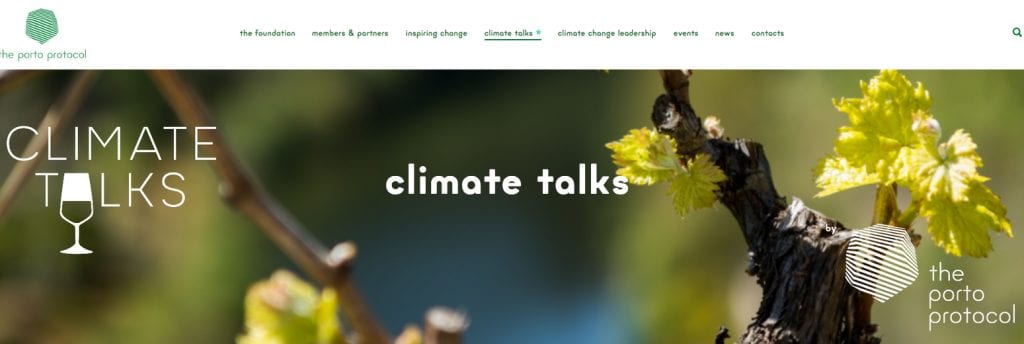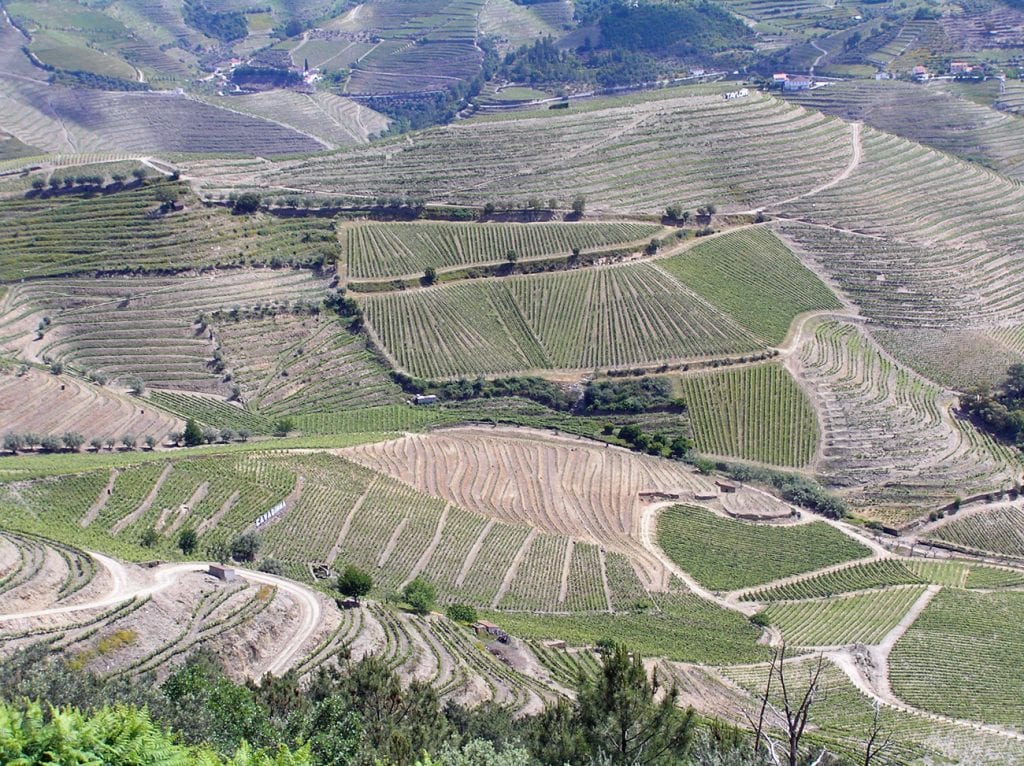Liz Sagues takes a look at the Porto Protocol and how it is helping drive forward the discussion on sustainability in the wine industry.
In 2021, sustainability continues to be the green buzzword, spoken everywhere throughout the wine world. Individual and collective initiatives are legion, but have enough wine people heard of the Porto Protocol foundation? Its ambitious vision is to see a world “where companies join efforts and act together to slow and reverse climate change”.
Of course, there’s a mission statement on how to work towards that, but it strikes me as one inspired less by too-common marketing speak and more by realism: “To drive collaborative action by bringing together a network of change makers and workable climate solutions for and within the wine world.”
Look on the website, www. portoprotocol.com, and the “inspiring change” page is a remarkable resource of information about relevant effort so far, from detailing the economic benefits of sustainable packaging or how water consumption can be substantially reduced simply by using narrower-diameter winery hosepipes, to explaining research on the assessment of vineyard ecosystems or how bacterial strains present in the soil affect the growth of plants. Sharing this information – there are currently 70 different projects described – is surely a great step towards wider progress.
The site also links to a series of online climate talks, run since May last year. Those were how I discovered Porto Protocol, when Mentzendorff (newly returned as a Friend of the Circle) sent out press releases about them. The final one, The Choice of Grape Varieties as a Resilience Building Tool, was the last of all the 2020 webinars I watched. It was one of the most interesting – and sensible.

Appropriately, as Porto Protocol is firmly rooted in the Port city of Oporto (Adrian Bridge of Taylor’s was awarded the Drinks Business 2020 Best Green Initiative title for spearheading the establishment of the foundation), the Douro Valley featured importantly. David Guimaraens, head winemaker of the Fladgate Partnership, was one of the speakers, alongside Dan Petroski, winemaker at Larkmead Vineyards in Napa Valley, and Werner Morandell, owner of organic estate Lieselehof in the South Tyrol. Tobias Webb from Sustainable Wine chaired the session.
Here are some highlights of the discussion, when the speakers were asked what practical steps wine growers could take to deal with climate change. Where viticulture now “goes very wrong” said Guimaraens, was that money speaks too much, with the planting of favoured varieties in locations the investors chose, not those best suited for them.
Douro growers had learned from experience, discovering that moving away from traditional multi-variety vineyards to single-variety ones led to wines much more one-dimensional in style – and also opened up more risk of disease and less resistance to drought. “Precision viticulture” – planting a mix of varieties, after research into which were the best places for them – was the way forward in an increasingly drought-stricken region.
There was one simple solution, said Morandell: if it’s hot in the valley, plant higher – which is what he has done, with the result, for example, that he gets similar wine from Pinot Blanc at 600 metres as he did from the variety at 200 metres three decades earlier.
Two factors alongside hotter temperatures better viticultural practice affected harvest time, Petroski argued: healthier young vines as a result of replanting using more carefully chosen rootstocks, and picking at a slightly lower potential alcohol level. But perhaps it was time to consider other varieties in California beyond ultra-fashionable Cabernet Sauvignon, as well as changes in clones, canopy management, row direction and more.
Change of varieties could be the only solution in some regions, said Morandell, citing the south of Italy or Greece as examples. “You can’t change the climate, the climate will change you.”
Moving to associated green-growing issues, he urged more planting of newer PIWI disease-resistant varieties such as Solaris, flourishing at 1,200 metres in South Tyrol and also in places such as Sweden and Canada. Eighty per cent of Lieselehof vines were now PIWIs, and mildew treatment had been hugely reduced, by 80 to 90 per cent, he said. He hasn’t used pesticides for 25 years and with grass, legumes and flowers between the vines there has been no need for fertiliser either.
Do watch the whole webinar – there is much to learn. But here is how Guimaraens summed up: “Climate change has become the umbrella, the excuse for a lot of incompetence. Climate change is real but it is not to blame for everything… At the end of the day we have all got to focus on sustainability. That is the only way forward. Unfortunately, public demand is not sufficient. Legislation has also got to force that, otherwise the change is too slow.”
Porto Protocol has a long and distinguished list of members and partners, not all focused only on wine. Among them are Amorim, Marks & Spencer, Napa Valley Vintners, Toyota and Wine Intelligence, and leading individual vineyards worldwide such as Alves de Sousa, Catena Zapata, Domaine Dujac, Frog’s Leap, Treasury Wine Estates, Willamette Valley Vineyards and Villiera.
More on-line discussions are planned this year, so watch the website.

